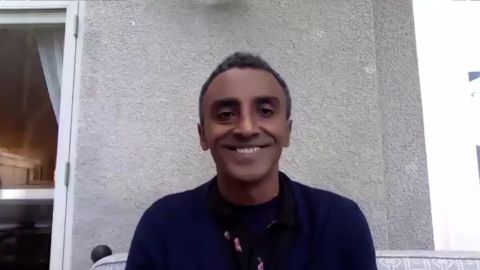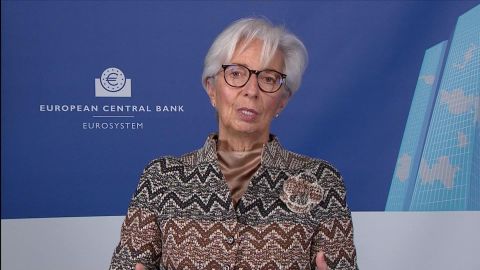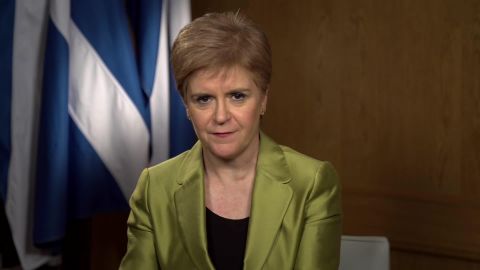Read Transcript EXPAND
CHRISTIANE AMANPOUR: We understand, since our interview, latest reports are that Prime Minister Johnson has briefed his Cabinet members, after meeting with the European Commission president, and essentially is saying that there is a very strong possibility, a very strong possibility — he said it twice — that they could be an Australia-style result of these negotiations, which basically means a no-deal. This is what he said:
NICOLA STURGEON, SCOTTISH FIRST MINISTER: Yes.
BORIS JOHNSON, BRITISH PRIME MINISTER: I have just updated Cabinet on where we have got to with our friends and partners in the E.U. And they agreed very strongly with me that the deal on the table is really not at the moment right for the U.K.
AMANPOUR: So, he’s pretty much — how do you read it? You’re a politician. What do you think he’s saying there?
STURGEON: Yes, I think the chances of a deal now are almost vanishingly small. They’re not nonexistent. And I remain hopeful, I guess, because no deal will be catastrophic. But I’m starting to worry not that just no deal is now the overwhelming likelihood, but that Boris Johnson is actually now almost planning for that. You know, exactly a year ago right now, the U.K. general election took place, and he fought that election to be elected as prime minister, basically saying that his deal with the European Union was oven-ready. He later said that no deal would be a failure of statecraft and it was a million-to-one chance against that happening. Now, today, he’s saying it’s very highly probable. Now, let’s just focus on what that means. In just three weeks’ time, the U.K. will see its relationship with European Union ruptured, with no agreement about the future trading relationship. That means that we will see barriers to trade, tariffs. It will mean cooperation and collaboration on things like education and research, law enforcement, climate change, all of that will be compromised. And the consequences of that will be really significant and really damaging to people and businesses the length and breadth of the U.K. And it seems to me that all of that is because Boris Johnson is failing to grasp or accept that responsible independent countries in the modern world have to collaborate and work with others, and at times pool sovereignty for the greater good, for the greater well-being and prosperity of their populations. And I think he’s about to take the U.K. down a very, very damaging road. And, for Scotland, that is made all the worse because we didn’t vote for it. We rejected Brexit in the referendum in 2016, and now face that no-deal cliff edge, which is completely against our wishes, and will do real damage to us.
About This Episode EXPAND
Christiane speaks with President of the European Central Bank Christine Lagarde in an exclusive interview. She also speaks with Scottish First Minister Nicola Sturgeon. Walter Isaacson speaks with chef Marcus Samuelsson about why restaurants are more than just places to eat.
LEARN MORE


